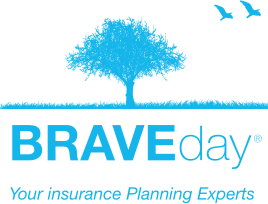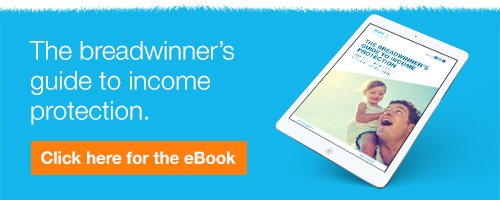
There’s no such thing as sick leave for the self-employed. Take a day off and you wear the cost—it’s why having a rainy-day fund to cover holidays and unwell days is essential. But what if you’re injured or sick for longer than your emergency fund can support you through? Enter self-employed income protection.
Wait, what about the Accident Compensation Corporation (ACC)?
It’s important to realise that ACC only covers accidental injury. It does not cover illness, injuries that happen over time (unless work-related), or conditions related to ageing or emotional issues such as stress.
In fact illnesses, not accidents, are the leading cause of loss of income for Kiwis. The Financial Services Council reports that New Zealanders are 2.6 times more likely to be off work for six months or more due to sickness than from an accident.
ACC income protection: what do you get?Under normal ACC cover, if you earn over $25,376 and are unable to work after an accident, ACC will pay 80 per cent of your income up to $99,242.
If you are permanently disabled, ACC may provide either a one-off or an ongoing payment. However, the amount you receive is dependent on an ACC assessment of your disability.
Did you know? If you share an income with your spouse, ACC will split your injury cover directly in half. If you earn $120,000 between you, you’ll only get 80 per cent of $60,000 paid out.
Fill in the gaps with income protection
With ACC only covering accidents—and only up to 80 per cent of your annual earnings—self-employed workers need to have other means to protect their income should they fall ill (physically or mentally) or sustain an overuse injury.
That’s where income protection cover comes in.
Feeling like you’re paying twice for injury cover?
At first glance, paying for both ACC and private income protection insurance can seem like you’re paying for injury cover twice. Well, in a sense you are—and aren’t. As mentioned earlier, ACC covers accidental injury only. Income protection, on the other hand, covers illness—both physical (i.e. cancer) and mental (i.e. depression)—overuse injuries, and accidents.
So, yes, in the case of injury cover, you may feel like you’re paying twice. That you cannot opt out of ACC is a common bugbear among the self-employed. The good news is that there are a few ways to make your cover more cost effective.
- ACC Cover Plus Extra: With ACC’s Cover Plus Extra you can choose how much of your income you want covered. You can choose to have 100 per cent covered, or vice versa, opt to have less income covered and therefore pay lower levies. This can help you avoid feeling like you’ve paid twice for the same cover.
- Leverage your mortgage: Arrange to have some of your income protection linked to your mortgage. If you do get ill or injured, your amount of cover is based on your mortgage repayments, not your pay slip. And if you’re injured in an accident, ACC will chip in too.
Agreed Value or Indemnity policy: which is the best income protection for self-employed workers?
Go for Agreed Value, not Indemnity. As a self-employed worker, your income is likely to fluctuate. Naturally, this can pose a problem if you need to claim income protection.
With an Indemnity policy, you need to prove your income at the time of your claim—which, if you’ve had a particularly bad year, or if your work is highly seasonal—can put a major kink in your ability to cover your loss of income.
Meanwhile, an Agreed Value policy will take your average income over the last two to three years as a basis for a payout. And since it’s underwritten at application time, you know how much you are covered for up front, before you need to claim.
“Where possible, we recommend Agreed Value policies,” says Dean Young from BRAVEday.
For more information on income protection insurance and how it can help you, download our free ebook below.


